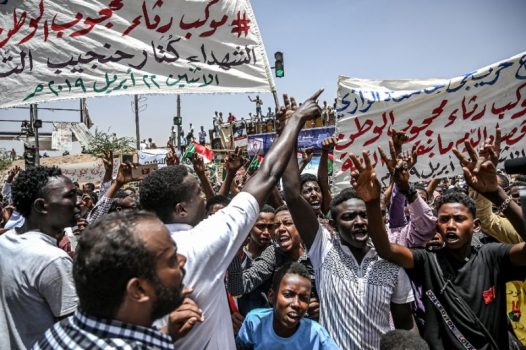 African leaders on Tuesday agreed to give Sudan’s ruling military council three months to implement democratic reforms, amid pressure for a quick handover of power to civilians.
African leaders on Tuesday agreed to give Sudan’s ruling military council three months to implement democratic reforms, amid pressure for a quick handover of power to civilians.
The decision by the leaders who met in Cairo over the weekend, extends a 15-day deadline set by the African Union last week for Sudan’s Transitional Military Council (TMC) to hand over power to civilians or risk their country being suspended from the body.
Any suspension of Sudan’s AU membership could affect the TMC’s efforts to win international recognition as the country’s legitimate rulers during an interim period of up to two years, thus delay any aid to the country which has been trying to cope with serious economic crisis.
The TMC has been under pressure from demonstrators to hand power rapidly to civilians since the country’s military ousted Omar al-Bashir on April 11 following months of protests against his 30 years in office.
Speaking at the end of a summit attended by several African heads of state, the Egyptian president, Abdel Fattah el-Sisi who holds the rotational AU presidency said the meeting agreed to quickly restore Sudan’s constitutional system through a political democratic process led and managed by the Sudanese people themselves.
“We agreed on the need to give more time to Sudanese authorities and Sudanese parties to implement these measures,” Sisi told the meeting.
Although the TMC has resisted pressures to hand power to civilians, it however said it was ready to accept a civilian government made up of technocrats to run the country during an interim period of up to two years to prepare the grounds for a presidential election.
Meanwhile, the United States government has reiterated its call for the Sudanese military to hand over power to a civilian-led transitional body as clamoured for by citizens of the country.
This was contained in its latest statement on the post-Bashir crisis issued by the Department of State on Sunday, the same day that a massive protest rocked the Sudanese capital, Khartoum.

Biden Administration Imposes New Sanctions On Iran Following Attack On Israel
Israel’s European Allies Urge Restraint Amid Escalating Tensions With Iran
Israel Prepares For Possible Attack From Iran As Tensions Escalate
Senegal’s President Bassirou Appoints Ousmane Sonko As New Prime Minister